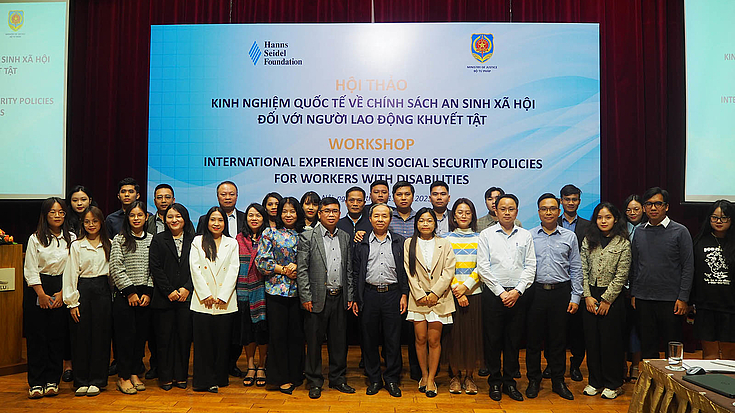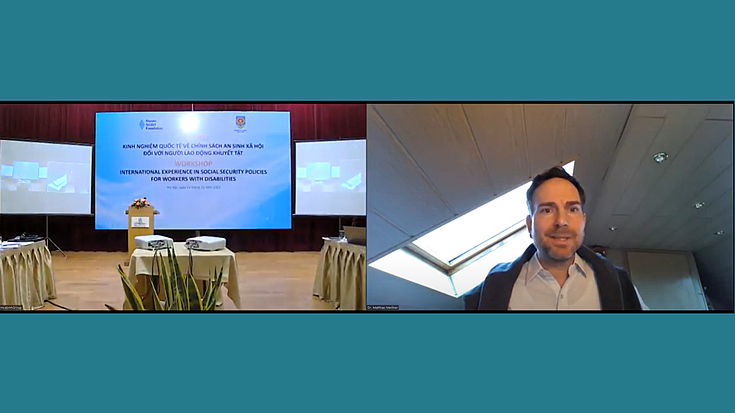Workshop on Social Security Policies
Workshop on International Experiences in Social Security Policies for Workers with Disabilities
Participants of the workshop are legal and labour officials from MOJ and MONRE, along with legal practioners and researchers
HSF
Presently, Vietnam has approximately 6.8 million people with disabilities, accounting for about 5.8% of the population, with roughly 1.5 million of them being of working age. The focal point of this workshop is the enhancement of social security policies for disabled workers, aiming to secure their rights and facilitate their integration into Vietnamese society for stable lives. The emphasis is on fostering a societal framework where workers with disabilities actively contribute to overall prosperity, rather than relying solely on support policies. Mr. Cao Dang Vinh, Deputy Director General of the Department of Civil and Economic Law at the Ministry of Justice, underscored the importance of addressing this issue with a global perspective and exploring innovative solutions adaptable to Vietnam's unique context.
The workshop was enhanced by presentations from several experts on social security policies for people with disabilties. Luu Thi Lam, from MoJ's Department of Civil Economic Law, provided a comprehensive overview of Vietnam's legal framework for disabled workers and demonstrated how these regulations are put into practice. Mai Duc Thien, representing the Ministry of War Invalids and Social Affairs, then addressed the obstacles encountered during the implementation phase. The examination focused on the high levels of informal employment among people with disabilities, which results in a lack of health insurance and heightened risks of poverty. The discussions and presentations focused on examining new social security policies related to individuals with disabilities and their links to economic development, employment, and equality.
Prof Matthias Meißner, University of Applied Sciences Düsseldorf, Germany shared insights on the EU’s social policies
HSF
In the workshop's second part, Professor Matthias Meißner from the University of Applied Sciences Düsseldorf, Germany, presented a comprehensive review of the challenges, opportunities, and legal frameworks concerning workers with disabilities in Europe. He particularly emphasized the negative socioeconomic consequences that individuals with disabilities must confront, in contrast to able-bodied individuals. These consequences include lower education rates, worse health outcomes, and a higher probability of being employed in the informal sector, resulting in increased poverty levels. Based on the UN Convention on the Rights of Persons with Disabilities (CRPD), which advocates for the full integration of individuals with disabilities into society, Germany may serve as an exemplary model for addressing these matters. This is particularly visible in the involvement of individuals with disabilities in the preparation of the draft law from the beginning, adhering to the principle of "Nothing about us without us." The workshop is part of the bilateral Rule of Law Dialogue between Germany and Vietnam in which HSF is an implementing partner.


